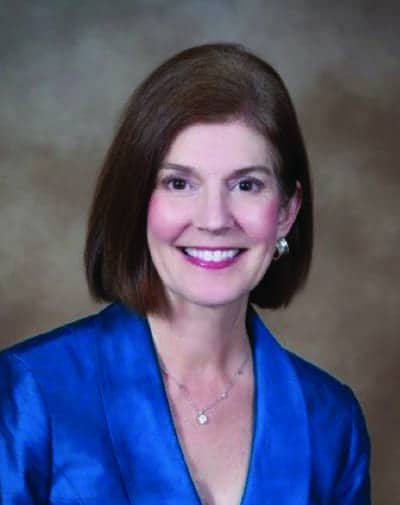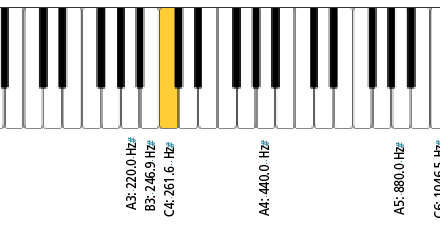Practice Management: Precepting | October 2015 Hearing Review
Taking on externs is good for your business and your profession. Here’s how to do it.
Externs can make significant contributions to clinical and operational efficiencies within private practice settings, and can be a tremendous practice resource. Qualified and dedicated preceptors create much needed opportunity for preparing audiology doctoral students to meet the challenges of independent practice in today’s competitive hearing healthcare market.
Today’s competitive forces impact all aspects of the hearing healthcare market, including the student-preceptor relationship. As one of the largest employment sectors in our profession, private practice settings afford an important placement resource for students and university training programs, as well as for the profession itself. Additionally, as the current provider demographic ages, opening doors to independent practice ownership through externship opportunities is a valuable byproduct of mentorship for both students and practicing professionals.
But the commitment to hosting a 4th year extern is one that calls for more than clinical expertise and business acumen. As with any practice setting, clinically competent audiologists engaged in private practice may or may not have the commitment and/or requisite mentoring, teaching, communication, and management skills to serve successfully as preceptors.
Preparing Yourself
If you are a private practitioner considering serving as a preceptor, there are some important logistical considerations. First and foremost, take time to prepare for your new role as a preceptor. Explore your state’s specific licensure, registration, and regulatory requirements for externs, and make sure your student and their respective university are familiar with these issues.
Spend some time exploring the universal principals of and techniques for precepting, such as communication techniques for providing effective feedback, adult learning styles and teaching strategies, and other skills needed for successful extern oversight. The American Board of Audiology (ABA) is developing a new Preceptor Training Certificate program for audiologists who provide clinical instruction to audiology students to assist preceptors in gaining an understanding of their critical role as educators. The first training module, “The Ideal Preceptor,” is scheduled to come online in late Fall 2015, followed by four more training modules. The Training Program is being developed by the ABA Preceptor Training Working Group, comprised of expert preceptors and educational coordinators, and will fully integrate the Clinical Education Guidelines for Audiology Externships, issued by the American Academy of Audiology (AAA). Such training is a focused, concise way to improve your skills as a preceptor.
Although you will likely receive a written agreement or contract from the university, your practice may want to structure a separate contractual agreement with the extern. Review both options carefully with your practice counsel, and be sure liability insurance for the student has been addressed. According to the AAA Position Statement on Externs, the university should provide “proof of professional liability insurance for the student.”
Provide sufficient notice regarding professional expectations, such as attire, personal leave and vacation, scheduling arrangements, pre-employment medical and immunization requirements, and other employment issues. Take stock of your staff’s collective abilities to provide a rich, rewarding experience for the extern, while making certain that student, university, and practice employment setting expectations are clearly defined for everyone. Remember, the often fast-paced, multi-faceted environment of a busy private practice may present a steep learning curve for many students, who may or may not have had adequate instruction in the financial and operational aspects of this type of employment setting.
Recruiting and Preparing for an Extern
What’s the most effective strategy to recruit an audiology extern? First, follow the suggested timeline for the externship application process as provided by the AAA. Consider completing the new Preceptor Training Certificate from the ABA to ensure that prospective externs and university faculty are comfortable with your practice’s ability to provide effective mentorship and prepare students for a career in audiology.
As you seek to identify appropriate 4th year extern candidates, construct a value proposition for your practice externship opportunity. What unique opportunities does your practice offer? Be specific, and be honest. If your ideal candidate seeks a broader externship experience than your clinic offers, consider networking with other hearing healthcare providers to allow the extern to explore cochlear implants, vestibular testing, a larger pediatric caseload, and other audiologic services, if these are not offered within your practice.
Prepare an application for your proposed externship offering, and determine what type of stipend and benefits will be offered. While you will certainly want to interview the student, be sure to communicate directly with university personnel at the onset of your search. To ensure that your extern placement efforts are successful, craft your externship interview questions carefully. For example, you might consider:
- What requirements, if any, does the university (or student) have regarding preceptor certifications?
- What is the university’s prescribed length for the externship, including specific start/stop dates?
- How can you target unique requirements specific to your practice? For example, if you have multiple locations and travel to various offices is required, does the extern have reliable transportation?
In structuring the ideal extern experience, developing an effective onboarding strategy for the student is critical. Make sure you establish and abide by a schedule for regular communication with your extern, as well as their university supervisor. Maintaining frank and frequent communications with the supervisory personnel from the academic program is important to ensure that clinical competencies are satisfactorily achieved, and both student and preceptor expectations are met. Your staff members should also be familiar with the onboarding objectives timeline, and be comfortable with both the university and practice performance expectations for the extern.
Credentialing and Reimbursement
What about credentialing and reimbursement issues? When students are involved in providing audiologic services to Medicare beneficiaries, it is critical to review the 2008 Centers for Medicare and Medicaid Services’ (CMS) Transmittal 84. Although there have been changes to this transmittal, 4th year AuD student requirements have not changed. The pertinent sections for students and preceptors with regard to providing diagnostic services to Medicare beneficiaries are:
- “Contractors shall not pay for services that require the skills of an audiologist when furnished by an AuD 4th year student or others who are not qualified according to section 1861 (II)(3) of the the Act.”
- “Although AuD 4th year students, and other audiology students, do not meet the current requirements in statute to provide audiology services, they may meet standards equivalent to audiology technicians.”
Commercial payers have plan-specific requirements and should be consulted regarding those individual policies when students perform services for their subscribers, with and without supervision.
Medicare does allow students to provide services for which Medicare is billed under the following conditions:
- The preceptor must provide 100% line-of-site supervision and is not to be performing other tasks. The audiogram and chart notes must be signed by the supervisor and include the student’s signature.
- A physician order for medical necessity is documented. This must be included in the documentation of the visit in the patient’s medical record.
- The student may assist in writing the report with the supervisor’s assistance.
- The supervisor can bill for these services under their own National Provider Identifier (NPI) which is linked to their Medicare Provider Transaction Access Number (PTAN) via the enrollment process.
- Although unlikely, if the student has a master’s or doctoral degree in audiology and is licensed as an audiologist in the state in which they are providing services, they can directly bill Medicare for their services based on medical necessity and a physician’s order.
- If an audiology student has met the standards to be an audiology technician and not an audiologist, they are able to perform the test only (technical component) and not any interpretation or report writing regarding that test, with physician supervision, for the following CPT codes that have a technical and professional component: 92540-92546, 92548, 92585, 92587, and 92588. The physician would bill the TC modifier for those tests performed in this manner. For the interpretation and report done by an audiologist or physician, those codes would be filed with the -26 modifier.
Benefits to You and Your Practice
So, what benefits can hosting an extern offer you and your practice? Fresh perspectives for students and mentors! Students have lots of energy and enthusiasm, and can revitalize the clinic dynamic within a practice. Mentorship in private practice is both critically important to the profession and personally rewarding. The exchange of knowledge and skills can encourage both staff members and students to embrace new techniques, monitor effectiveness of existing strategies, and try new approaches.
Extern relationships also encourage revisiting not only the “how” but the “why” of clinical decision making and service provision. And for those practice owners who are considering the sale of their practices, externships offer an ideal setting to evaluate the skills, interests, and personal synergies of potential candidates for a successful practice transition.
Externs can and do make significant contributions to clinical and operational efficiencies within private practice settings, and can be a tremendous practice resource. Qualified and dedicated preceptors create much needed opportunity for preparing audiology doctoral students to meet the challenges of independent practice in today’s competitive hearing healthcare market.
Bettie Borton, AuD, is the Director of University and Student Outreach at Audigy Group and has worked in a variety of professional settings, including the founding of a multi-location private practice, for more than 30 years, as well as a visiting professor at Auburn University and Auburn Montgomery. Dr Borton was also the first president of the Alabama Academy of Audiology (ALAA) and a president of the American Academy (AAA).
Debbie Abel, AuD, spent 13 years in private practice and recently became the manager of Audigy Care Contracting Services. She also works on a limited schedule with Arch Health Partners in Poway, Calif. Dr Abel has served in several capacities for AAA, including Senior Specialist, Practice Management, and Director of Reimbursement and Chair of the Coding and Reimbursement Committee. She is also an adjunct assistant professor at A.T. Still and Salus Universities.
Correspondence can be addressed to HR or Dr Borton at: [email protected] or Dr Abel at: [email protected]
Original citation for this article: Borton B, Abel D. Precepting for Private Practitioners: Enjoying the Perks and Avoiding the Pitfalls. Hearing Review. 2015;22(10):20.







